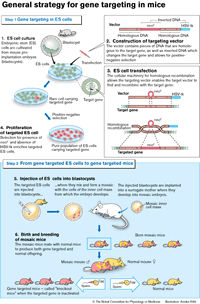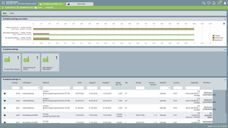Myriad Genetics and Syngenta Complete Rice Genome Map
Advertisement
Myriad Genetics, Inc. (Nasdaq: MYGN) announced today that it has completed DNA sequencing of the entire rice genome in collaboration with the Torrey Mesa Research Institute, TMRI, (formerly Novartis Agricultural Discovery Institute, Inc.), a subsidiary of Syngenta. Myriad completed the high-throughput sequencing component of the genome six months ahead of schedule and under budget, triggering a $3 million cash bonus payment to Myriad.
The rice genome map will assist crop researchers and plant breeders in the development of new crop varieties with enhanced characteristics. Additionally, it may serve as a model for other cereal crops such as corn and wheat. In addition to the DNA sequence, the information about the rice genome includes the regulatory DNA sequences controlling gene activity and the location of most of the genes. Furthermore, the collaboration will now be expanded to include the use of Myriad's ProNet® technology to elucidate the rice proteome. The sequencing of the rice genome is an important milestone because it is the first agriculturally important crop to be sequenced. The rice genome is made up of 430 million bases of DNA, representing approximately 50,000 genes, making it the second largest genome of any kind to have been sequenced to date.
Myriad and Syngenta completed the rice genome to a very high degree of accuracy in less than a year and a half from announcement of the project. The rice genome sequence is the most accurate and comprehensive large genome with direct commercial value yet sequenced. The rice genome map is better than 99.5% complete, compared with the human genome map, which still contains a number of large gaps and is estimated to be approximately 90 - 95% complete.
"We are very proud that the Torrey Mesa Research Institute and Myriad have pioneered this research and that our innovative approach has been successful," said Dr. Steve Briggs, President of TMRI. "Identifying not only the genes, but their functions and how they work, will provide researchers with crucial new knowledge to improve food crops."
This remarkable accomplishment was aided by Myriad's proprietary, high-throughput DNA sequencing facility that averages 40% more sequence per machine than other users of capillary sequencing machines. Myriad's outstanding capability in DNA sequencing pervades the organization, from predictive medicine to proteomics and genome sequencing. The expansion of the collaboration adds the use of the Company's ProNet® technology to determine how protein interactions control the rice plant's growth and development.
"Our Syngenta collaboration highlights many of Myriad's strengths, including our strategy of building multiple sources of near-term revenue generation," said Peter Meldrum, President and Chief Executive Officer of Myriad Genetics, Inc. "The alliance has demonstrated our ability to move away from mere royalties toward 50:50 profit sharing agreements on the use of our technologies."
The rice genome project required extensive use of Myriad's genomic technologies, including its high-throughput DNA sequencing facility that is based upon the latest generation of capillary DNA sequencers. The facility is generating over 12 million bases of DNA sequence daily, a rate that would allow sequencing the entire human genome in a single year. The high throughput DNA sequencing facility is used in most of Myriad’s research programs for the delivery of high quality, high throughput DNA sequence.
"Myriad's bioinformatics capabilities made this accomplishment possible in such a short time frame," said Sudhir Sahasrabudhe, Ph.D., Executive Vice President of Research and Development for Myriad Genetics, Inc. "The basecalling and sequence assembly software as well as software that constructs individual chromosomes from the segmented data were all developed in-house a

















































